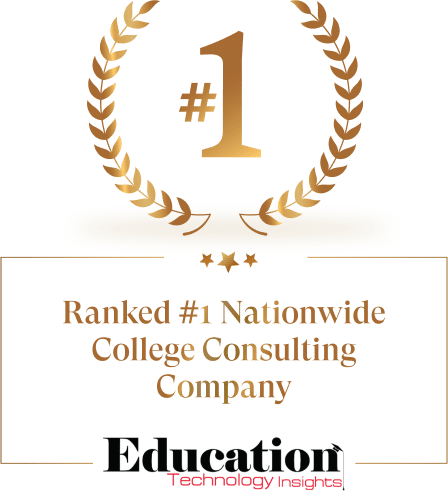College Profile Insights and Overviews for Ivy League and Top Universities
Explore detailed college profiles and insights from Zenith Prep Academy to help you compare top universities like Ivy League schools. Access accurate data, statistics, and educational resources designed to improve your academic profile and support your college admissions journey.
Your college profile encompasses everything you’ve done through your high school years. Developing it requires time and consideration so you can put your best foot forward with admissions departments and potential mentors. At Zenith Prep Academy, we specialize in long term college profile development and preparation. It is our goal to give you the best opportunity possible to achieve acceptance into the country’s top universities, or your money back.
Learn how to build a college application profile with us today, or enroll in our program to gain full college preparation support from grades 6-12.
Academic Achievements
It all starts with your academic profile. At Zenith, we call this “Defense”: if you are playing a sport, you won’t get very far if you don’t have strong defensive capabilities—but, as we’ll see in the rest of this article, defense is not enough. No matter what college you are applying to—whether that is a seeking admission to a top 25 school or hoping for a strong merit scholarship from a top 100 school—you need strong defense that includes:

- GPA: In general, your work in 11th and 12th grade will matter more than your GPA in 9th and 10th grade, but it is all important. You want to create as much of an upwards trajectory as possible.
- Course Rigor: Colleges don’t just look at your raw GPA. They also want to see you challenging yourself with the most rigorous AP, IB, or Dual Enrollment classes your school offers. If your options at your school are limited, Zenith counselors can help you find alternatives.
- Standardized Tests: While some colleges started going “test optional” in 2020—meaning that they do not require standardized tests—many colleges (especially top 10 schools like MIT and Georgia Tech) have moved back to requiring the SAT or ACT. Standardized test scores are important, but you don’t want to over-invest in test prep at the expense of GPA, Course Rigor, and Extracurricular achievement. Zenith counselors can help you find the right balance.
Extracurricular Activities
Colleges in the United States don’t just care about GPAs and test scores. Indeed, top schools like MIT, Stanford, Harvard, and Yale will often turn away students with perfect GPAs and Test Scores if they do not also have compelling extracurricular profiles. That is why we call the Extracurriculars “Offense”: this is when you get beyond just firming up your academic foundation and show colleges why you should be admitted over all the other students with strong academic profiles.
Basic extracurriculars that are good, but common, among student populations are:
- Participating on a high school or club sports team.
- Being part of a club at school.
- Signing up for a volunteer activity outside your school.
These are all great ways to start an offensive strategy, but for the most competitive universities these common activities are usually not enough to secure admissions. To go deeper:
- Research: A STEM student might start the process of researching machine learning algorithms in 9th or 10th grade, publishing an initial research paper in 10th grade, and then use that research experience to secure a research internship.
- Community Leadership: Any student can look out at their community, see a challenge, partner with existing community organizations to find a solution and—with multiple years of collaboration—rise to a leadership level and start up a new initiative.
- Passion Projects: Sometimes if you have a strange or unusual interest, the deeper you go in it, the more unique your profile can become. If you love knitting, you might start by making gifts for family members, then branch out into making YouTube videos teaching others how to knit, starting up an entrepreneurial business, or even teaching local classes that let people trade personal stories about challenges in their life, using knitting as a way to connect. The further you let your creativity take you, the bigger an impact you can make.
Every student’s offensive strategy looks different. Finding the right mixture of activities and balancing those activities while maintaining a strong defensive position in your core academics is the key to college admissions success. Zenith counselors specialize in helping students and families find this balance.
Personal Statement and Essays
When you do apply for college, you’ll need to tell your story to explain what you did in high school and what that journey of growth and development meant to you. Colleges only give you a limited space to tell that story with a few essays and a resume.
There are a thousand different ways to write these narratives—all you need to do is try googling “College Essay Writing” and be bombarded with general advice from all directions. These essays will probably be the most important thing that you write in your whole life: if you have strong offense and defense, a good essay can get you into the Ivy League, while a substandard one will get you lost in the pile of other applicants.
At Zenith, we work one-on-one with students to find the right way to tell your story in the limited space that applications allow.

Letters of Recommendation
While letters of recommendation fall to teachers and mentors to provide, you have a lot of agency is making these letters as strong as possible.
- Good letters of recommendation come from good relationships with teachers and mentors. Zenith counselors coach you from day one on how to make a good impression that makes teachers and mentors excited to recommend you.
- Who recommends you matters: Believe it or not, STEM schools like MIT like to see a recommendation from BOTH a STEM teacher and a Humanities Teacher. You can’t just focus on your math and science classes and get an optimal set of letters.
- Your teachers will often ask you to provide them with information on your goals and accomplishments so that they can write the best letter possible. Zenith can coach you on the best kind of information to give them.
Whether you’re preparing to start high school or you’re starting to submit applications, Zenith Prep Academy’s college profile builders are ready to help. Enroll today and let us help you develop a college profile that drives results.
Crafting a Winning College Profile: A Step-by-Step Guide
What makes a college profile stand out to admissions officers?
A strong college profile is important in college admissions. It gives a clear overview of an applicant’s academic profile, personal insights, and achievements. Admissions officers want to see profiles that show not only academic success, but also the applicant’s unique story and how they can contribute to the campus community.
Key elements that help a college profile stand out include:
- Clear academic profile: Highlight your GPA, challenging courses, test scores, and any awards.
- Compelling college narrative: Share your experiences and goals honestly to connect with reviewers.
- Relevant college overview: Include extracurricular activities, leadership roles, and community work.
- Fit with admissions criteria: Highlight particular qualities colleges look for like curiosity, resilience, and leadership.
- Support from counselors and resources: Use help from counselors and college board guides to meet expectations.
Focusing on these areas gives admissions officers valuable college insights rather than just facts. This helps your application stand out by showing your true abilities and readiness for college.
How to showcase your unique skills and experiences effectively
It is important to show your unique skills and experiences in your scholarly profile when applying to colleges. Your personal statement and application should explain what makes you different—highlighting your strengths, interests, and growth—since this affects acceptance decisions.
To showcase your story well:
- Find your main strengths and interests related to your desired field: Identify the talents or passions that have shaped your academics and activities.
- Write an honest personal statement: Use clear examples to tell your unique personal and academic narrative.
- Highlight personal qualities important to the college: Include leadership, volunteer work, or projects that show these skills.
- Discuss challenges carefully: Talk about any struggles, like concerns about student loan debt or career planning, to show your ability to overcome issues.
- Get help from professionals: Work with counselors and mentors to improve your applications and essays.
Using these steps will make your college profile not only informative but also memorable and strong. This lets colleges see your potential beyond grades and test scores.
Key differences between profiles for various college types (Ivy League, liberal arts, etc.)
College profiles change depending on the type of school you apply to. Knowing these differences will help you adjust your application to fit each college’s expectations.
- Ivy League universities (like Columbia University, Princeton University, Yale University):
- Focus on research experience, leadership, and top academic work.
- Show intellectual curiosity and your ability to make an impact in many fields.
- Include important college stats such as acceptance rates and alumni success to make your profile strong.
- Liberal arts colleges:
- Emphasize broad academic interests and skills across subjects.
- Show community participation and teamwork, important in smaller schools.
- Point out unique college characteristics like close faculty relationships and personalized learning.
- Private universities (such as Duke University, Stanford University, Vanderbilt University):
- Combine academic success with consistent involvement in passion-driven activities and leadership.
- Talk about affordability and scholarships to ease worries about student loan debt.
- Match your college details to their admission criteria, which look at the whole applicant.
- Public universities:
- Stress strong academics and majors that fit your career goals.
- Show you are ready for larger campuses and a diverse student body.
- Clearly state application choices like early decision or regular deadlines.
By comparing these profiles and understanding each school’s features, you can create college narratives that improve your chances of acceptance. This also helps you plan your applications better and use your resources well.
Ready to build a standout college profile?
At Zenith Prep Academy, we give expert advice to help you through every step of the college admissions process. Contact us today to start creating your own unique and effective college profile.
Frequently Asked Questions
Q: How important is the academic profile versus extracurricular activities?
A: Both matter, but colleges want a balance of strong academics and meaningful extracurricular activities. This shows you are well-rounded and have leadership skills.
Q: Can I use the same profile for different types of colleges?
A: It is better to change your profile to match the specific traits and expectations of each college type, like Ivy League versus liberal arts schools.
Q: How do counselors help in making a college profile?
A: Counselors give personal advice, assist with planning, review your applications, and connect you with college resources, which improves your profile quality.
Q: What if my academic record is not perfect?
A: Focus on showing your special skills, experiences, and personal growth. Admissions officers value honesty and determination alongside good academics.
Q: Are student loans a worry when applying?
A: Yes, but many colleges offer scholarships and aid. Talk about these options early in your planning to reduce concerns about student loan debt.
For more tips and resources on college admissions, check out our guides on college essay writing and financial aid options.
Showcasing Academic Excellence: Beyond GPA and Test Scores
When preparing your academic profile for college admissions, it is important to go beyond just your GPA and test scores. Colleges look for applicants who show intellectual curiosity, a passion for learning, and meaningful academic achievements. Your higher education profile should not only include good grades but also awards, research projects, and other academic activities.
To make your university application stronger, share examples of your academic strengths along with clear proof of your interest and dedication to your chosen major or degree. While the College Board and SAT/ACT results matter, admissions officers also want to see a unique educational profile. Highlighting your academic achievements this way can improve your chances of acceptance, scholarships, and financial aid. With proper planning and the right resources, you can create a strong academic story that matches the admissions criteria.
Highlighting academic strengths without boasting: Strategies and examples
It is important to present your scholarly profile confidently but without sounding boastful during the college admissions process. Admissions officers like applicants who clearly and respectfully show their academic achievements and intellectual curiosity.
Try these strategies:
- Give specific examples: Instead of just saying you love learning, provide specific projects, classes, or experiences that show this passion.
- Show growth: Explain how overcoming challenges helped you improve academically and build resilience.
- Include recommendations: Letters from counselors, mentors, or field-specific teachers add trusted support for your academic strengths.
- Show balance: Include both academic work and extracurricular activities without exaggeration.
- Use facts and results: Mention awards won, outcomes of research, or improvements in performance to back up your claims.
Using these methods helps you build a strong academic profile that fits college admissions criteria. Many applicants find that talking to counselors and using planning tools helps them improve their presentation. Getting guidance can increase your chances of acceptance and winning scholarships.
Essential academic achievements to emphasize: Research projects, awards, etc.
Certain academic accomplishments stand out and make your college application stronger. Highlighting these well can help your educational profile compete better.
Important achievements to list include:
- Research projects: Describe your role, goals, and what you learned. Research shows initiative and deep interest in learning.
- Awards and honors: Include recognitions from your school, district, or national contests related to academics or specific subjects.
- Academic achievements: Mention advanced classes like AP or IB, or a high GPA.
- Extracurricular honors: List leadership roles in clubs or academic organizations related to your interests.
- Notable accomplishments: Include publications, presentations, or participation in academic contests related to your field of interest..
Colleges want students who have solid credentials and a variety of learning experiences. Listing these achievements supports a strong profile for higher education and may lead to scholarships based on academic excellence and distinction.
Demonstrating intellectual curiosity and a passion for learning
Colleges value students who show intellectual curiosity and a true passion for learning. These qualities reflect a student’s motivation for lifelong education and the potential for academic success.
Here are ways to show these traits:
- Show wide interests: Talk about how you explore subjects beyond your main major or degree.
- Highlight self-learning: Share books you read, courses you took, or projects you did outside school.
- Describe research work: Explain your part in studies or experiments that made you want to learn more.
- Share motivation: Tell what drives your goals and how you plan to keep learning in college and beyond.
- Use support resources: Get help from counselors or programs like Zenith Prep Academy to explain your ideas clearly.
Including these points in your academic profile shows your scholarly skills and a strong love for learning. This matches what universities want and helps you stand out from other applicants.
Ready to build a strong academic profile? At Zenith Prep Academy, we provide expert counseling, planning tools, and personal support to help you show your academic excellence with confidence. Contact us today to find out how we can help you reach your college admission goals.
FAQ
Q: How important are research projects compared to GPA in college admissions?
A: Research projects show intellectual curiosity and a real-world application of your knowledge. They complement your GPA. Both are important, but research can help your application stand out by showing deeper learning. (Source: College Board Research)
Q: What types of awards should I include in my academic profile?
A: Include academic honors, competition awards, leadership recognitions, and subject-specific prizes. National and regional awards carry more weight, but local awards also help.
Q: How can I show passion for learning if my GPA isn’t perfect?
A: Focus on sharing your motivation, academic growth, research experience, and eagerness to learn on your own. Admissions officers value genuine enthusiasm as much as grades.
Q: Should I mention test scores like PSAT or SAT in my academic achievements?
A: Yes, especially if your scores are good and can help with scholarships. Include them with other achievements for a balanced profile.
Q: How can Zenith Prep Academy support my college admissions process?
A: We offer personalized counseling, planning tools, and resources to help you highlight your academic profile well, preparing you for acceptance and scholarship opportunities.
For more guidance on college admissions, visit our Comprehensive Guide to College Applications and explore topics that improve your educational profile.
Extracurricular Involvement: Demonstrating Impact and Leadership
Extracurricular activities are important in shaping your college profile and college narrative. These activities show colleges your character, leadership skills, and commitment outside the classroom. While participating in varsity sports and typical high school clubs, your involvement in field-related activities is key in strengthening your story. .
Colleges want to see students who make meaningful contributions to their high schools and communities. Showing impactful leadership and involvement proves you have skills beyond academics. Keeping track of your activities and contributions builds a well-rounded college profile that stands out during college admissions. This is especially helpful as many students aim to showcase their unique strengths while dealing with concerns like student loan debt and different college profiles.
Choosing impactful extracurricular activities to feature in your profile
Picking the right extracurricular activities is key to creating a strong college snapshot. Focus on activities that matter to you and help develop leadership and teamwork skills. Consider these tips when selecting extracurriculars to include:
- Meaningful Involvement: Choose activities that match your interests and show dedication.
- Balance Variety and Depth: Having different experiences helps, but focusing deeply on some activities shows commitment.
- Highlight Strengths: Select activities that reveal your unique skills and character.
Choosing your activities carefully will help create college features that make your application stand out in the college admissions process.
Quantifying your contributions and leadership roles within extracurriculars
To improve your college profiles, it is important to show measurable results for your leadership and contributions. Numbers and facts give clear proof of your impact and influence in extracurricular roles. Use stats and data by tracking:
- Hours spent on each activity
- Leadership titles held (like club president or team captain)
- Awards or projects you completed successfully
- Improvements in teams or groups thanks to your work
For example, if you created a Robotic club for your school, mention your role in finding a sponsor and gathering members, and explain how you helped grow the club to find success in numbers and in competition. Adding numbers makes your profile stronger and shows your leadership potential.
Addressing gaps or changes in extracurricular involvement effectively
Many students have gaps or changes in their extracurricular activities because of challenges or life events. How you explain these gaps in your narrative matters a lot. Colleges value honesty and understanding ways in which you have grown. Follow these suggestions:
- Clearly state reasons for breaks or changes, such as health problems or family needs.
- Focus on what you learned from these challenges and how you changed.
- Point out new skills you gained during these times.
- Show that you kept trying to stay involved even when things changed.
Explaining gaps well shows maturity and strength, which colleges look for. Adding this information to your college profile details gives a full and real view of your path.
Are you ready to build a college profile that shows your leadership and involvement clearly? At Zenith Prep Academy, we help students create college narratives that highlight their strengths and handle challenges. Contact us today to start telling your impactful college story!
FAQ
- Q: How many extracurricular activities should I include in my college profile?
- A: Focus on 3-5 activities that show commitment and leadership. Quality matters much more than quantity.
- Q: Can gaps in extracurricular involvement hurt my college chances?
- A: Not if you explain them well. Colleges appreciate honesty and growth. Use gaps to show your resilience and ability to adapt.
- Q: Should I include hobbies in my narrative?
- A: Include hobbies only if they show skills like creativity or leadership. Otherwise, focus on activities related to your growth and community work.
- Q: How do I quantify leadership impact in group activities?
- A: Use examples of how many people you led, events you organized, competitions you helped your group prepare for, and what the results were.
For more help, check our resources on building strong college profiles and improving your college admissions chances.
Personal Essays and Letters of Recommendation: Your Story and Authentic Voice
A strong college application includes more than just grades and test scores. The personal essay and letters of recommendation give you a chance to show who you are. These parts of your application give admissions officers a clear view of your story, growth, and potential beyond your academic record.
Writing a memorable personal essay helps high school students connect with university admissions officers on a personal level. Meanwhile, choosing the right recommenders can strengthen your application by offering honest and detailed views about your character and achievements.
This section provides clear advice, tips, and examples on writing personal essays and selecting individuals for recommendation letters to ensure a well-rounded application.
Crafting a compelling and memorable personal statement
The personal statement is a key part of your college application. It lets you share your story in your voice and make your application stand out. A good essay should be:
- Authentic and personal: Talk about experiences and values that truly define you.
- Clear and concise: Avoid confusing language or long sentences.
- Memorable: Use stories that catch the reader’s attention.
- Focused on your growth: Show challenges you have overcome and lessons you have learned.
When preparing a personal statement for your application, try these tips:
- Start with an interesting opening.
- Share your true passions and reasons for them.
- Connect your experiences to your future goals and the college you want to attend.
- Edit your essay several times to make it clear and strong.
A good personal statement adds depth to your application and shows your real voice. Counselors and writing guides can help you plan, write, and improve your essay so it fits your college profile well.
Strategies for writing a strong personal essay that showcases your authentic self
Writing a personal essay may feel challenging, but using the right steps can help you write a strong and honest essay. Follow these tips:
- Think carefully: Choose important moments in your life that show who you are. These can be challenges, successes, or changes.
- Tell a story: Explain your experiences clearly by sharing feelings, decisions, and results.
- Be yourself: Write honestly, not what you think the admissions team wants.
- Write drafts: Start with a rough draft focused on ideas. Then improve the structure and words through editing.
- Get feedback: Ask a counselor, teacher, or mentor to review your essay and give advice.
- Keep it clear and to the point: Admissions officers like essays that say a lot without extra words.
- Show your growth: Explain how your experiences have shaped your character and goals.
Following these tips will help your essay stand out and show the person behind the grades.
Selecting and working with recommenders to ensure a strong, comprehensive picture
Letters of recommendation provide another view of your strengths, work habits, and character. Picking the right recommenders and communicating well with them is very important for college admissions.
What to think about when choosing recommenders:
- Pick people who know your academic work and personal qualities, like field-specific teachers, counselors, or mentors.
- Choose those who can share specific stories and details instead of general praise.
- Make sure they understand your college goals and the image you want to present.
How to work well with recommenders:
- Tell them early about deadlines and what you need.
- Give recommenders your college profile, resume, and personal essay draft to help them write good letters.
- Keep a professional and respectful relationship, and update them on your progress.
- Ask for feedback if it fits, so they can improve their letters.
By working closely and planning well, your letters of recommendation will give a full and honest view of you as a student, making your application stronger.
Ready to write a strong personal essay or get great letters of recommendation? Contact Zenith Prep Academy today for expert advice to help with your college admissions. Share your questions or stories with us below—we want to hear from you!
Optimizing Your College Profile for Success
Applying to college can be difficult if your college profile is not well prepared. Your profile shows your high school achievements, activities, and potential. To improve your chances of acceptance, you need a clear, error-free, and professional profile. Working with school counselors and using available resources makes sure your applications are ready for submission and stand out to admissions teams.
Ensuring your profile is error-free and professionally presented
A college profile without errors and presented professionally is important for college admissions. Small mistakes can cause confusion or make reviewers question your attention to detail. Use these steps to get your profile ready:
- Review all applications carefully: Check for spelling mistakes, wrong dates, and missing information.
- Ask for help from professionals: Counselors and admissions experts can review your documents and give advice.
- Keep information clear and simple: Organize your grades, activities, and awards in an easy-to-read way.
- Start early: Begin the application process ahead of time so you have time to review and correct your profile.
- Use free review services: Many schools and groups offer free help to improve your profile.
Following these steps lowers the chance of errors that could hurt your college admissions success.
Utilizing resources to improve your college profile (e.g., Zenith Prep Academy)
Using good resources helps you build a strong college profile. Groups like Zenith Prep Academy provide tools and expert help to guide students through the application process. They offer:
- College data and insights: Get current facts about colleges to make your applications better.
- College overview and guides: Learn what each college expects from applicants.
- Counselor support: Get advice that matches your career goals.
- Planning tools: Use planners to keep track of deadlines and tasks.
- Career resources: Find career options that fit your interests.
Learning about these tools helps you improve your applications and increase your chances of admission. Visit Zenith Prep Academy to access free resources that support your college plans.
Leveraging technology to enhance your profile’s impact
Technology can make applying to college easier and improve your profile. Use digital tools and apps to save time and present your information clearly. Consider these options:
- Mobile apps: Manage your applications, deadlines, and documents on your phone or tablet.
- College profile databases: Look up detailed information about many colleges to choose the best ones for you.
- Cloudflare and web servers: These keep your application materials secure and easy to access.
- Digital resources: Use checklists and templates to organize your work.
Many of these tools are free or low-cost and make the process easier to understand. Using them can improve your profile and help with your career goals.
Ready to start? Check out our college guide and talk to expert counselors for help with your college profile. Have questions or want to share your thoughts? Leave a comment below and join the discussion!
What information is typically included in a college profile?
A college profile usually includes basic details like the college description, college facts, educational profile, and key characteristics. It often shows tuition fees, average test scores, campus facilities, and special programs to give a full summary of the college.
How can I compare profiles of different universities effectively?
To compare university profiles well, look at important factors such as available majors, tuition and fees, student life including sororities and fraternities, safety, and scholarships like Pell Grants or fee waivers. Using trusted websites and mobile apps made for college search can make this easier.
What should foreign students know about college profiling in the USA?
Foreign students should check for information on services for international students, visa rules, housing choices, and application steps. Knowing about support for undocumented students and financial aid options, including policies for noncustodial parents, helps with planning.
How do university profiles differ between institutions like Harvard College and smaller liberal arts colleges?
Big research universities often focus on many majors, research options, and interdisciplinary studies. Smaller liberal arts colleges usually highlight close-knit communities, personalized teaching, and varsity sports. Each profile shows unique features like Greek life, campus culture, and career support.
What role do college reviews and podcasts play in understanding an institution?
College reviews and podcasts give views from students and experts. They explain common myths, share tips for campus life, and provide real experiences about academics, social activities, and money matters. This helps students make better choices.
How can I find reliable information about college fees and financial aid options?
Look for official sources that explain sticker prices, CSS Profile forms, Pell Grant rules, and scholarships. Many college profiles list full fee details and payment plans. Talking to financial aid advisors or attending webinars can help understand costs and aid.
Are there tools to help track my college applications and profiles?
Yes, platforms like Scoir and CollegeVine have mobile apps to manage college profiles, deadlines, and test scores. These tools help keep you organized and allow easy comparison of schools, including handling optional parts like essays and recommendations.
What should parents and students consider about housing and campus life?
Check housing options, campus safety, social groups, and activities such as varsity sports or clubs. College profiles usually include average housing costs and info about inclusive communities and helping find a comfortable and supportive place to live.





